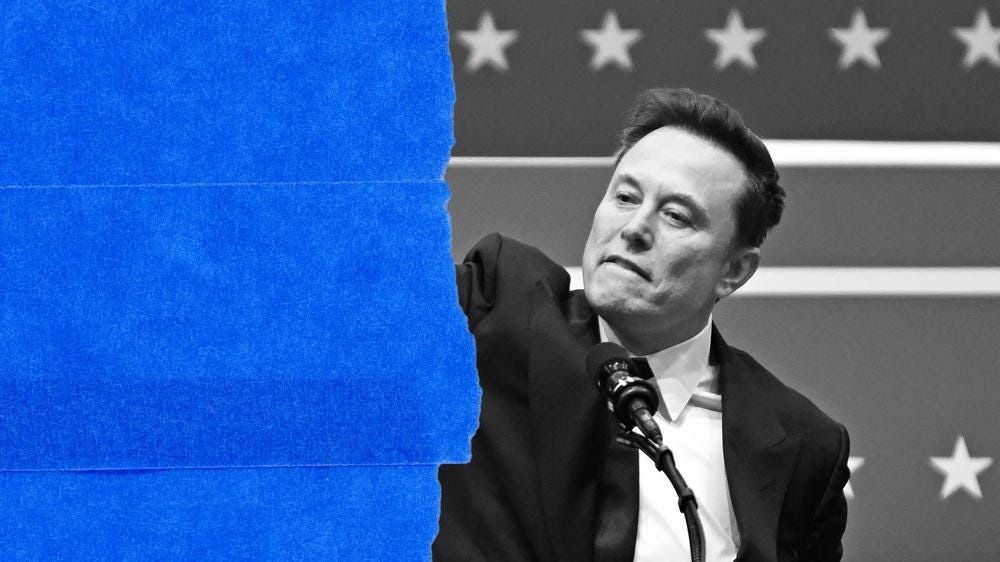On Gesture, History, and the Importance of Humble Leadership
New Rule: If a white supremacist likes what you do, the onus is on you to describe why your motivations aren't aligned.
Elon Musk’s gesture during Donald Trump’s 2025 inauguration sparked an immediate, heated response. Some saw it as a Nazi-like salute (and some liked it) (some liked it A LOT), a violation of historical sensitivities; others called it a gaffe, a clumsy display from a man known for social awkwardness. In Europe, the gesture was censored outright by news outlets, reflecting a deeper reverence for the continent’s painful past. Over there, such an act, intentional or not, requires immediate context and an unmistakable apology.
It’s easy in America’s current climate to dismiss or spin these controversies, but doing so misses the fundamental obligation of public figures and leaders to remain transparent, inclusive, and mindful in their messaging. It’s also incredibly easy to not make a motion that can be construed as a Nazi Salute.
The Power and Pitfall of Symbolism
Symbols carry weight. A stiff-armed gesture recalls some of the darkest chapters of modern history, even if it was never intended as such. Europe’s reaction speaks volumes: the scars of the Third Reich are still raw there, and any echo of the Nazi salute demands immediate explanation. We may argue that not everything has to be a Nazi reference, but gestures with that kind of visual parallel provoke justified concern. They need swift, sincere clarification—free of arrogance or dismissive language.
Humility in the Age of Division
A key facet of leadership is the willingness to acknowledge fallibility. The moment a public figure signals that they’re above criticism or beyond accountability, they begin to lose the consent of the governed. Our founders recognized that no person, not even the President, should be treated as a monarch. Leaders, including those with immense platforms, must embrace humility as part of the job description. They represent all of us, from the most passionate supporter to the staunchest critic, and they serve at our collective pleasure.
The Moral Imperative
This isn’t just about one individual or one controversial gesture; it’s about the broader principle that leaders should model empathy, take responsibility for misunderstandings, and unify rather than divide. Europe’s quick, protective censorship—while it may seem extreme from an American vantage point—shows a society vigilant against repeating the mistakes of the past. In the United States, we might consider adopting some of that vigilance in our own discourse.
Labeling everything as a Nazi reference can be unproductive, but publicly replicating an image so closely associated with that era requires contrition and genuine outreach. If leadership is truly about service, then it demands careful attention to symbolism, context, and the emotional resonance these gestures evoke.
A Call for Accountability
When leaders behave with humility and openness, they strengthen the social contract. This same principle fuels conversations about banning insider stock trading among elected officials: it’s about proving they are, without question, devoted to the public interest rather than personal gain. Similarly, leaders should treat public gestures—and any attendant controversies—with a sense of duty: they must convey that they’re willing to listen, to learn, and to show respect for those with different views and for those whose historical wounds still ache.
Humility, accountability, and empathy aren’t weaknesses; they are essential characteristics of effective leadership. A nation of free citizens deserves nothing less. At a time when we’re confronted with challenges that test our unity, the ability to say “I could be mistaken, let’s talk” may be the most powerful gesture of all.
My advice to those with power in our new “money is protected speech” world, Be Better; Serve All. Or risk losing legitimacy.


